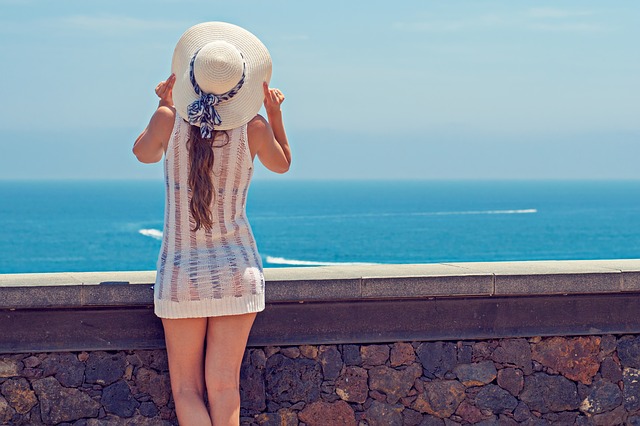5 Practical Tips for Protecting your Skin from the Sun

Few experiences are better than a day out in the sun. Whether it’s on the beach, a park or on a sports field, the sun’s rays help our bodies produce some much needed Vitamin D. Unfortunately, you can have too much of a good thing.
Too much time exposed to sun rays may lead to sunburn, premature aging, skin damage, and skin cancer. Knowing how to protect your skin against the sun could help you avoid some difficult consequences while still being able to bask in the warmth of sun rays. Here are five practical tips for protecting your skin from the sun.
Wear a wide-brimmed hat
The importance of wearing a hat cannot be overstated. According to Dr. Darrell Rigel, clinical professor of dermatology at New York University, every inch of the brim of your hat lowers your skin cancer risk by 10%. Hats are perhaps the simplest ways to protect your face and neck against the sun. Find yourself a wide-brimmed hat to maximize your protection and be sure to take it with you, whether you’re heading to the beach or out into the garden. But bear in mind that hats won’t protect your entire body from harmful sun rays – you’ll still need to apply sunscreen.
Use an SPF foundation
Applying sunscreen daily may seem like a laborious additional task when getting ready in the morning. In truth, it is more necessary than ever, especially with the current condition of the ozone layer. However, if time in the morning is not on your side, there are some moisturizers and foundations that contain SPF and can double as sunscreen for your face. By using these products, you can incorporate sun protection into your morning routine.
We often only think of sunscreen in the summer months, but the winter sun can also cause skin damage. Using an SPF foundation daily will ensure that you are protected against the sun all year long.
Wear darker clothes
Wearing long sleeve shirts and pants will help to block out sun rays, but realistically, when the temperature soars, you’ll probably be wearing shorter and skimpier items. No matter the weather, the color of your clothes also has an influence on the amount of UV rays hitting your skin. Lighter colored clothes will have less UV protection than darker colored clothes. The material of the clothes will also be a factor in their protection against the sun. The thicker the material, the better.
So the next time you head out for a day in the sun, try to wear darker colored clothes to give your skin more protection against the sun.

Be aware of reflective surfaces
Although we usually only think about skin damage when we’re faced with a warm sunny day outside, the truth is that snow and water can provide just as much of a threat. Sun rays reflect easily off these surfaces. As a case-in-point, Piz Buin sunscreen was created after founder Franz Greiter suffered a sunburn climbing Mount Piz Buin, rather than a day out on the beach.
You may also think that you’re under no risk when you’re swimming. Skin damage from sun rays is not limited to the times that you are dry and lying on the beach. You can be wet and be getting sunburnt at the same time.
Being aware of reflective surfaces will remind you to apply sunscreen on more than just sunny days. This will help you avoid long term skin damage.
Reapply every two hours
To give your skin the best chance against the sun, you should apply sunscreen about 30 minutes before you expose yourself to sun rays outside. That in itself is a start, but not the end. No sunscreen is fully waterproof or sweatproof. You should reapply sunscreen every two hours to keep your skin properly protected if you are spending the day outside. This repetition can become habitual and your skin will thank you in your old age.
The damage to your skin is not always immediately visible – sometimes the effects are only noticeable years later. Applying sunscreen should be as important as brushing your teeth. It should be a daily routine and a risk that you are informed about and act on. Once you protect yourself, you can enjoy those sunny summer days, or hikes up Mount Piz Buin with the knowledge that your skin is protected against damage and the risk of cancer.

